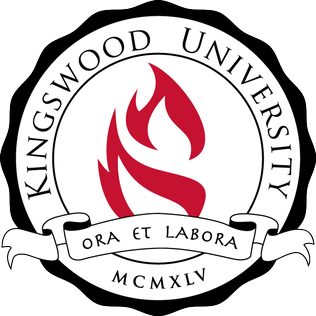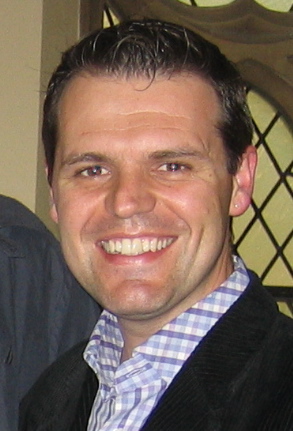Evangelicalism, also called evangelical Christianity or evangelical Protestantism, is a worldwide interdenominational movement within Protestant Christianity that puts primary emphasis on evangelization. The word evangelic comes from the Greek word for 'good news'. The Gospel story of the salvation from sin is considered "the good news". The process of personal conversion involves complete surrender to Jesus Christ. The conversion process is authoritatively guided by the Bible, the God in Christianity's revelation to humanity. Critics of the conceptualization of evangelicalism argue that it is too broad, too diverse, or too ill-defined to be adequately seen as a movement or a single movement.
Methodism, also called the Methodist movement, is a Protestant Christian tradition whose origins, doctrine and practice derive from the life and teachings of John Wesley. George Whitefield and John's brother Charles Wesley were also significant early leaders in the movement. They were named Methodists for "the methodical way in which they carried out their Christian faith". Methodism originated as a revival movement within Anglicanism with roots in the Church of England in the 18th century and became a separate denomination after Wesley's death. The movement spread throughout the British Empire, the United States and beyond because of vigorous missionary work, and today has about 80 million adherents worldwide.

Cooperstown is a borough in Venango County, Pennsylvania, United States. The population was 460 at the 2010 census.
The Holiness movement is a Christian movement that emerged chiefly within 19th-century Methodism, and to a lesser extent influenced other traditions such as Quakerism, Anabaptism, and Restorationism. Churches aligned with the holiness movement teach that the life of a born again Christian should be free of sin. The movement is historically distinguished by its emphasis on the doctrine of a second work of grace, which is called entire sanctification or Christian perfection. The word Holiness refers specifically to this belief in entire sanctification as an instantaneous, definite second work of grace, in which original sin is cleansed, the heart is made perfect in love, and the believer is empowered to serve God. For the Holiness movement, "the term 'perfection' signifies completeness of Christian character; its freedom from all sin, and possession of all the graces of the Spirit, complete in kind." A number of Christian denominations, parachurch organizations, and movements emphasize those Holiness beliefs as central doctrine.
In Christianity, sanctification literally means "to set apart for special use or purpose", that is, to make holy or sacred. Therefore, sanctification refers to the state or process of being set apart, i.e. "made holy", as a vessel, full of the Holy Spirit. The term can be used to refer to objects which are set apart for special purposes, but the most common use within Christian theology is in reference to the change brought about by God in a believer, begun at the point of salvation and continuing throughout the life of the believer. Many forms of Christianity believe that this process will only be completed in Heaven, but some believe that entire sanctification is possible in this life.
The Alliance World Fellowship is an evangelical Christian denomination It includes 6.2 million members throughout 88 countries within 22,000 churches.

Indiana Wesleyan University (IWU) is a private evangelical Christian university headquartered in Marion, Indiana, and affiliated with the Wesleyan Church. It is the largest private university in Indiana.
Albert Cook Outler was a 20th-century American Methodist historian, theologian, and pastor. He was a professor at Duke University, Yale University, and Southern Methodist University. He was a key figure in the 20th-century ecumenical movement.

Kingswood University is an evangelical Christian university associated with the Wesleyan Church, located in Sussex, New Brunswick, Canada. It is accredited by the Commission on Accreditation of the Association for Biblical Higher Education. It is chartered by the province of New Brunswick and authorized to confer degrees in church-related education. The university is also registered with the Evangelical Fellowship of Canada, the Association of Christian Schools International, and the Christian Higher Education Canada (CHEC).

The conservative holiness movement is a loosely defined group of theologically conservative Christian denominations with the majority being Methodists whose teachings are rooted in the theology of John Wesley, and a minority being Quakers (Friends) that emphasize the doctrine of George Fox, as well as River Brethren who emerged out of the Radical Pietist revival, and Holiness Restorationists in the tradition of Daniel Sidney Warner. Schisms began to occur in the 19th century and this movement became distinct from parent Holiness bodies in the mid-20th century amid disagreements over modesty in dress, entertainment, and other "old holiness standards". Aligned denominations share a belief in Christian perfection, though they differ on various doctrines, such as the celebration of the sacraments and observance of ordinances, which is related to the denominational tradition of the specific conservative holiness body—Methodist, Quaker, Anabaptist or Restorationist. Many denominations identifying with the conservative holiness movement, though not all, are represented in the Interchurch Holiness Convention; while some denominations have full communion with one another, other bodies choose to be isolationist.

William Tyndale College was a private nondenominational Christian college located in Farmington Hills, Michigan, United States. Named after 16th-century Protestant scholar William Tyndale, the college was founded as the Detroit Bible Institute in 1945, and became accredited by the American Association of Bible Colleges in 1954 and North Central Association of Colleges and Schools in 1988. William Tyndale College closed on December 31, 2004. Its motto was In essentials, unity; in non-essentials, liberty; and in all things, charity.
A Bible college, sometimes referred to as a Bible institute or theological institute or theological seminary, is an evangelical Christian or Restoration Movement Christian institution of higher education which prepares students for Christian ministry with theological education, Biblical studies and practical ministry training.

Dion Angus Forster is an academic and clergyman. He serves as a professor of Public Theology in the Faculty of Religion and Theology at the Vrije Universiteit Amsterdam.
John Wesley University was a private interdenominational Christian college in High Point, North Carolina. In 2018, the university merged into Piedmont International University in Winston-Salem.

Wesleyan theology, otherwise known as Wesleyan–Arminian theology, or Methodist theology, is a theological tradition in Protestant Christianity based upon the ministry of the 18th-century evangelical reformer brothers John Wesley and Charles Wesley. More broadly it refers to the theological system inferred from the various sermons, theological treatises, letters, journals, diaries, hymns, and other spiritual writings of the Wesleys and their contemporary coadjutors such as John William Fletcher, Methodism's systematic theologian.
The Immanuel General Mission is a holiness denomination based in Japan. It was founded on 21 October 1945 in Tokyo, Japan by David Tsugio Tsutada, ""The John Wesley of Japan." It is a member of the Japan Evangelical Association (JEA).
There are three kinds of Seminaries in India:

The Evangelical Wesleyan Church, formerly known as the Evangelical Wesleyan Church of North America, is a Methodist denomination in the conservative holiness movement.

Kenneth J. Collins is an American Wesleyan theologian and ordained minister in the Global Methodist Church. He is a professor of Historical Theology and Wesley Studies at Asbury Theological Seminary. He is a leader in Wesley Studies, and his work The Theology of John Wesley: Holy Love and the Shape of Grace has been translated into Portuguese and Korean. He is the Director of the Wesleyan Studies Summer Seminar.










